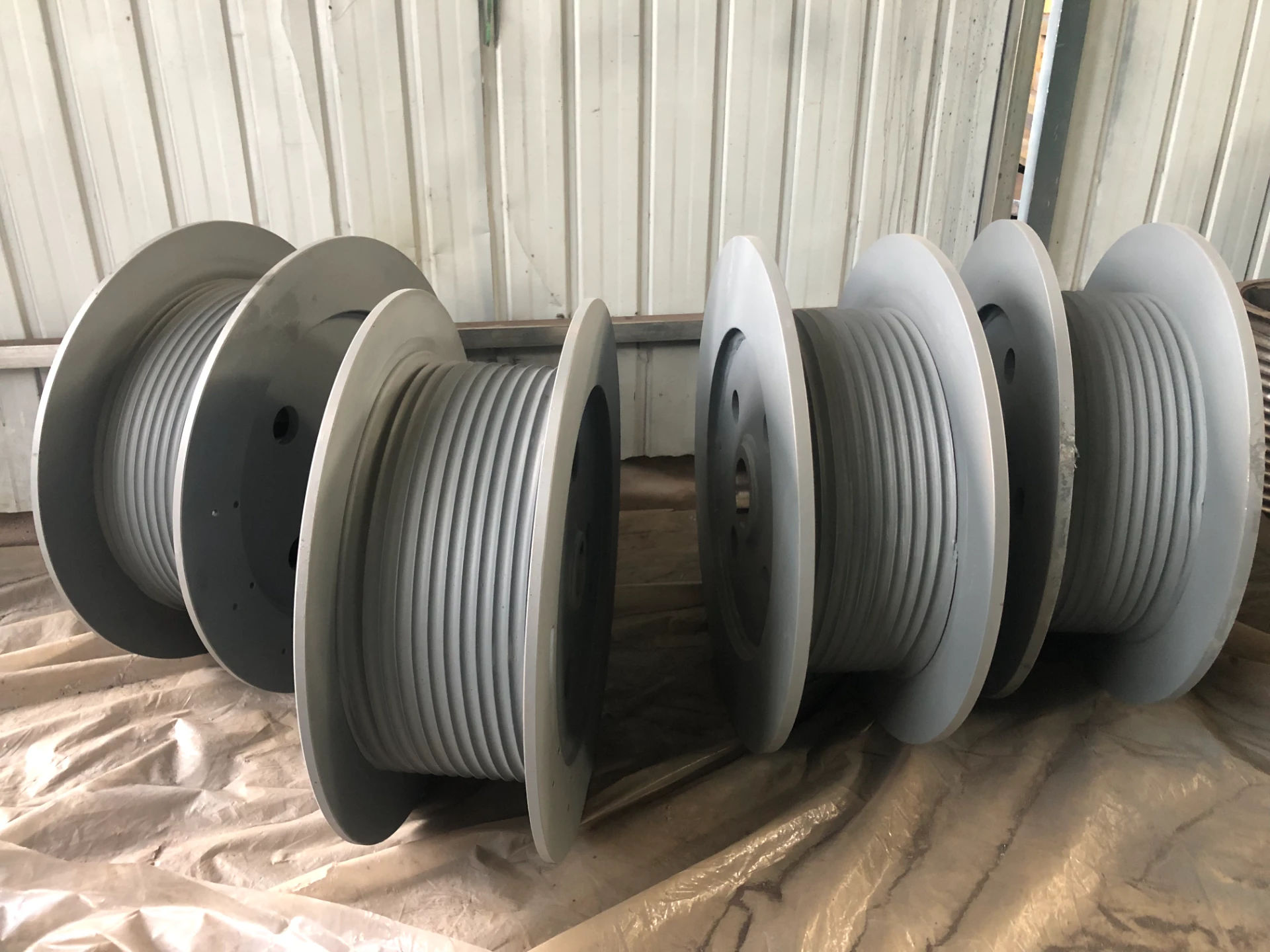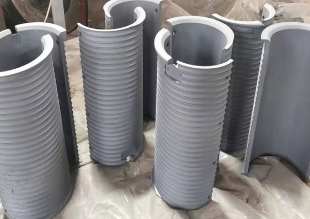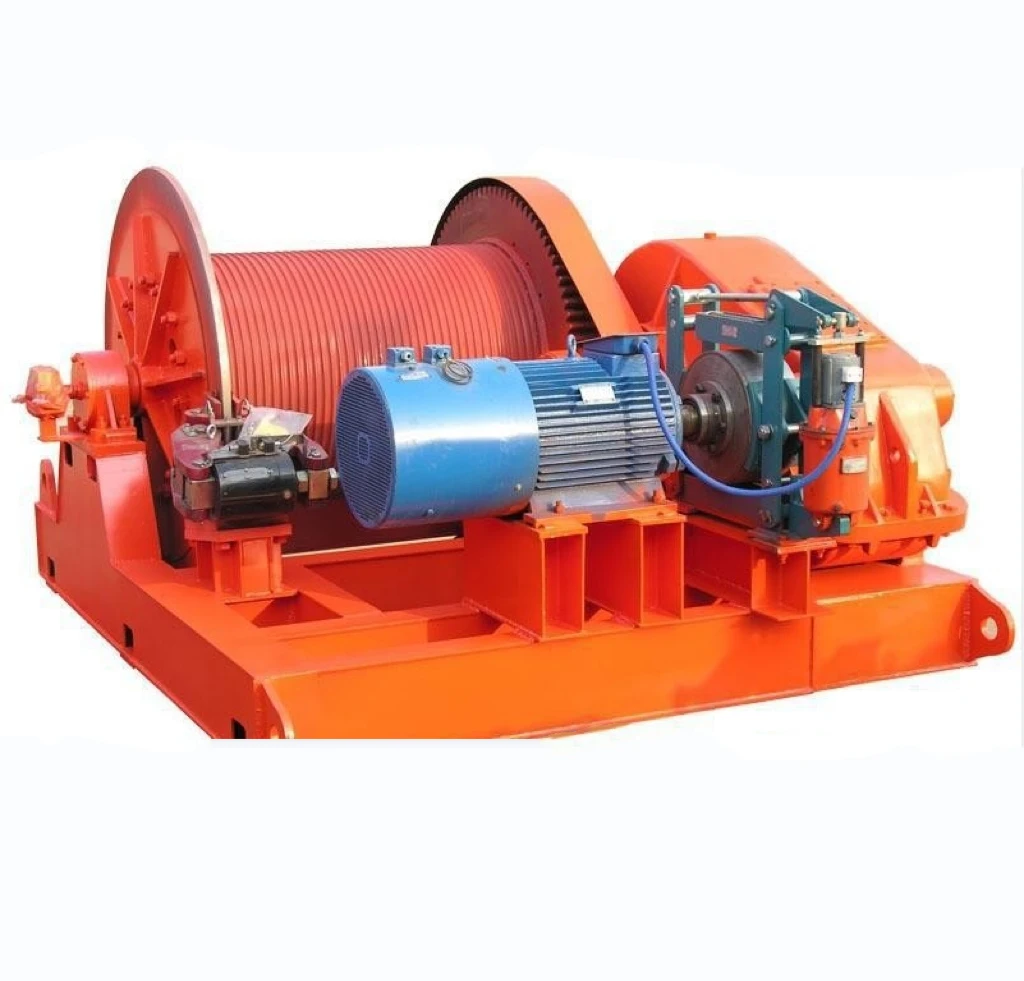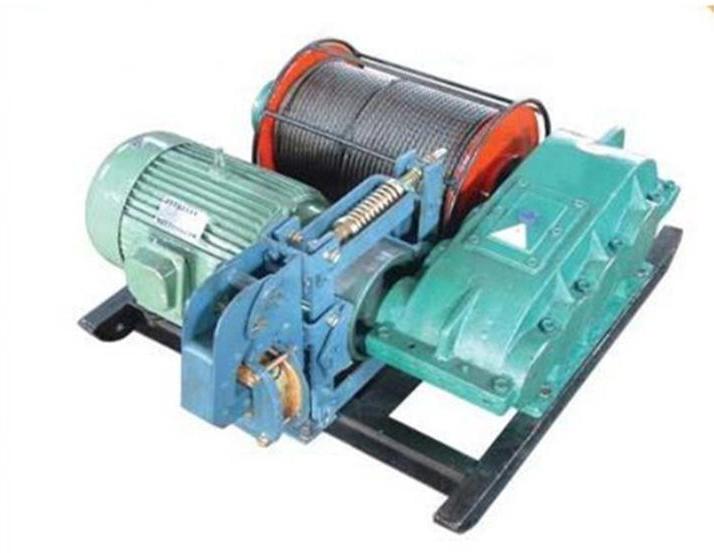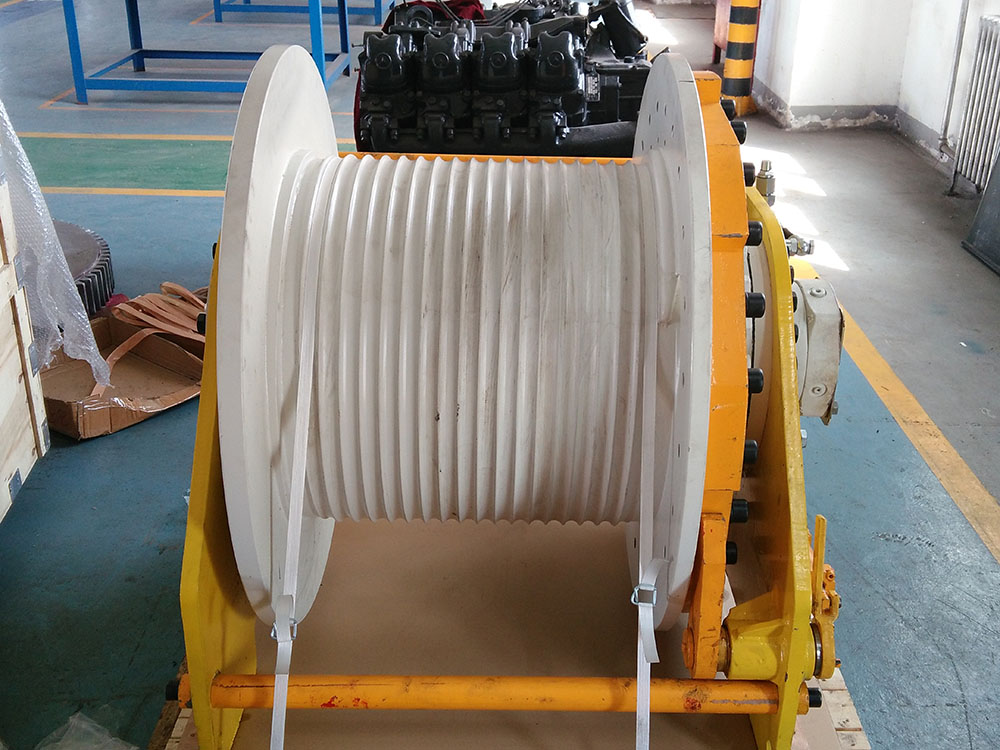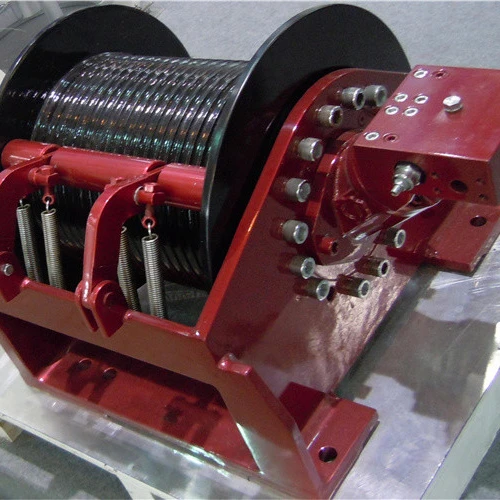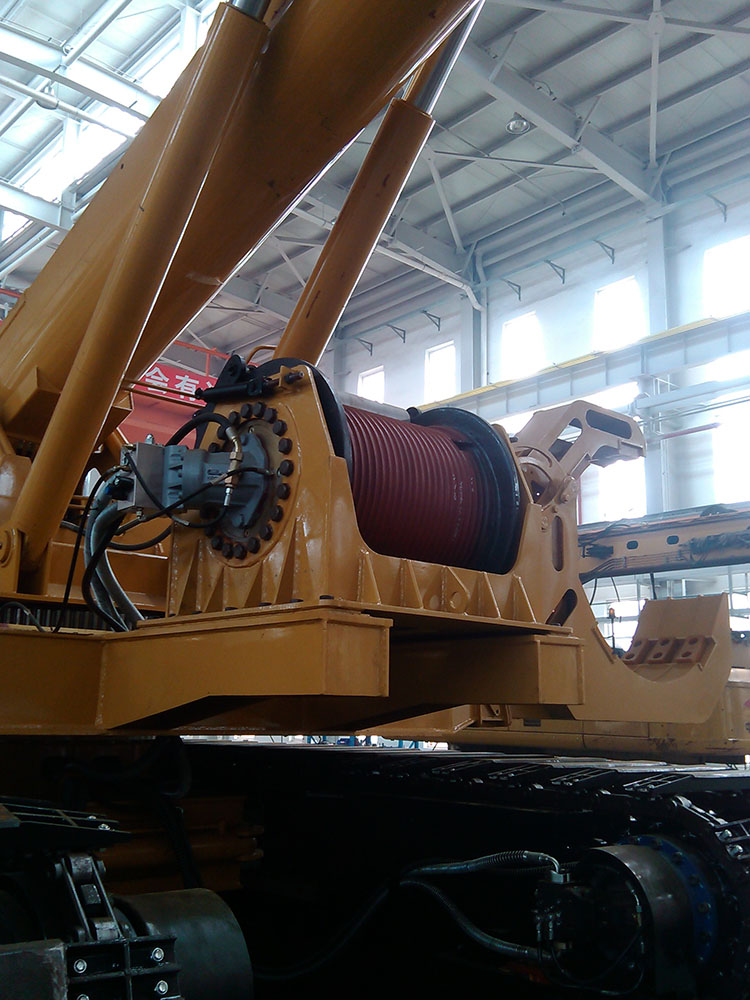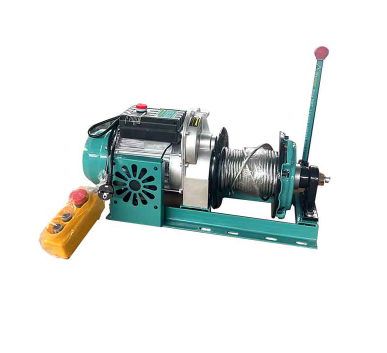Polymer Nylon Lebus Sleeves: Energy Saving & Insulating for Winches
Advancing Winch Performance: The Era of Polymer Nylon Lebus Sleeves
The demands on modern lifting and hoisting equipment are perpetually escalating, driven by the need for enhanced operational efficiency, reduced maintenance expenditures, and superior safety standards across diverse industrial sectors. Traditional winch drum grooving systems, often relying on cast iron or steel, inherently present challenges such as excessive weight, susceptibility to corrosion, and energy losses due to friction. These limitations directly impact the longevity of wire ropes, the power consumption of winches, and overall operational reliability. Recognizing these critical industry trends, innovations in material science have paved the way for advanced solutions that fundamentally redefine performance benchmarks. The introduction of Polymer Nylon Materail Energy Saving And Insulation Lebus Sleeves For lifting Winch represents a pivotal shift, offering a compelling alternative that addresses these pervasive issues head-on. By leveraging the unique properties of high-performance polymer nylon, these sleeves provide significant advantages in weight reduction, superior insulation against electrical currents, and remarkable energy savings through optimized friction management. This technological leap contributes substantially to extending the service life of winch components and ensuring more sustainable, cost-effective operations in demanding industrial environments. The industry is witnessing a clear trajectory towards integrating lighter, more durable, and intrinsically energy-efficient components, with polymer nylon emerging as a frontrunner for critical applications like Lebus grooving. This material innovation is not merely incremental but transformative, promising to unlock new levels of performance and economic benefit for operators globally.
Unveiling the Manufacturing Prowess: The Process Behind Polymer Nylon Lebus Sleeves
The creation of high-performance Polymer Nylon Materail Energy Saving And Insulation Lebus Sleeves For lifting Winch involves a meticulous multi-stage manufacturing process, ensuring precision, durability, and adherence to stringent industry standards. It commences with the selection of premium-grade polymer nylon raw materials, specifically engineered for high mechanical strength, excellent wear resistance, and low coefficient of friction. These specialized polymers, often high-molecular-weight polyamides, are chosen for their superior hydrolytic stability and resistance to various chemicals, making them ideal for harsh operational environments. The manufacturing process typically involves advanced injection molding or casting techniques, where the molten polymer is precisely formed into the intricate Lebus groove pattern. This initial forming is critical for achieving the exact helix angle and pitch required for optimal wire rope spooling. Following the primary forming, the sleeves undergo precision CNC machining to refine dimensions, ensure concentricity, and achieve tight tolerances, crucial for seamless integration with existing winch drums. Unlike traditional metal components that may require complex forging or extensive casting, the polymer process optimizes material usage and reduces post-processing.
Quality control is integrated at every phase, from raw material inspection to final product verification. Each batch of Polymer Nylon Materail Energy Saving And Insulation Lebus Sleeves For lifting Winch is subjected to rigorous testing protocols, including dimensional accuracy checks, material strength tests (e.g., tensile strength, impact resistance), and wear resistance assessments. Compliance with international standards such as ISO 9001 for quality management systems and potentially specific ASTM or ANSI standards for material properties and mechanical performance is paramount, providing an authoritative assurance of product reliability. In typical applications, these polymer sleeves demonstrate a significantly longer service life compared to metallic alternatives, often extending maintenance cycles by 2-3 times due to their inherent resistance to abrasion and fatigue. Their non-corrosive nature makes them exceptionally suitable for industries like petrochemical, marine, and wastewater treatment, where exposure to corrosive elements is common. Furthermore, in demanding sectors such as metallurgy and mining, the thermal and electrical insulation properties of polymer nylon contribute to enhanced safety and energy efficiency, preventing stray current corrosion and reducing power consumption.
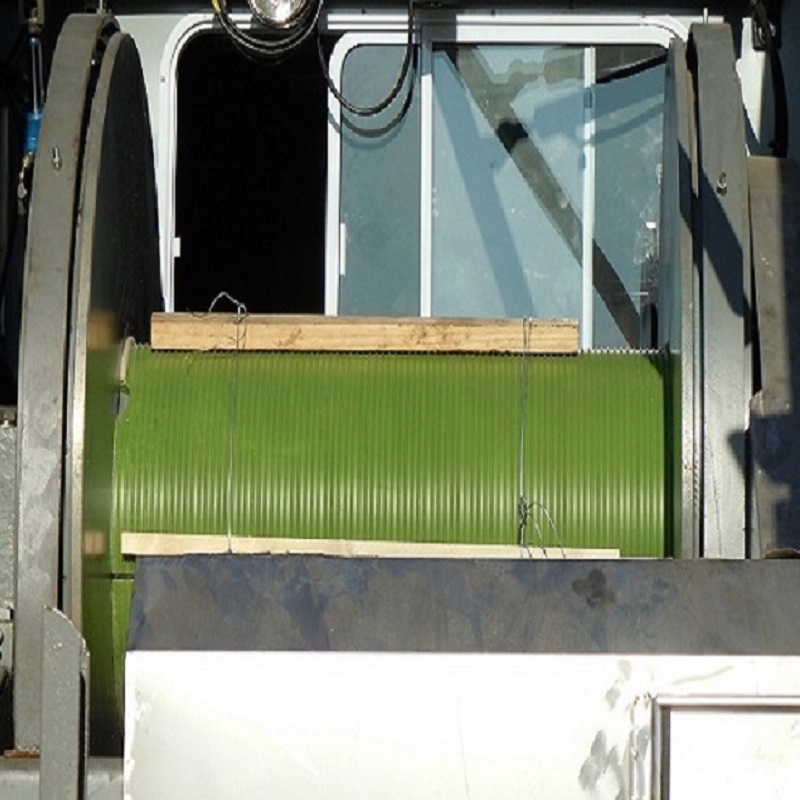
Technical Parameters and Performance Superiority
The technical specifications of Polymer Nylon Materail Energy Saving And Insulation Lebus Sleeves For lifting Winch underscore their significant performance advantages over traditional metallic options. A key differentiator is their substantially lower density, typically around 1.15 g/cm³, which translates to an approximate 85% weight reduction compared to steel. This weight saving reduces rotational inertia, leading to lower energy consumption during start-up and braking cycles of the winch, thereby enhancing overall system efficiency. The inherent self-lubricating properties and low coefficient of friction (typically 0.15-0.35, depending on specific grade and conditions) of the polymer nylon material significantly minimize wear on the wire rope, extending its lifespan and reducing the frequency of costly replacements. Furthermore, the material exhibits excellent electrical insulation capabilities, with a dielectric strength far exceeding that of metals, effectively preventing galvanic corrosion and short circuits in electrically sensitive environments. This insulation is crucial in marine or offshore applications where stray currents can rapidly degrade metallic components.
In terms of mechanical performance, while the tensile strength of polymer nylon is lower than steel, its superior impact resistance and fatigue strength against cyclic loading are highly advantageous for dynamic winch applications. The polymer can absorb shock loads more effectively, reducing stress concentrations on the wire rope and the winch drum structure. Operating temperature ranges for these sleeves typically span from -40°C to +80°C, accommodating most industrial environments without degradation of mechanical properties. Their exceptional corrosion resistance, unlike steel or bronze, means they are impervious to rust and most common industrial chemicals, including acids, bases, and solvents, eliminating the need for protective coatings or specialized maintenance in aggressive atmospheres. This chemical inertness ensures sustained performance and structural integrity over prolonged periods. The table below provides a comparative overview highlighting these critical parameters, offering a clear visual representation of why Polymer Nylon Materail Energy Saving And Insulation Lebus Sleeves For lifting Winch stand out as the superior choice for modern winch systems requiring optimal efficiency and durability. This comprehensive comparison showcases the technical superiority and long-term economic benefits derived from integrating advanced polymer technology into critical lifting equipment components.
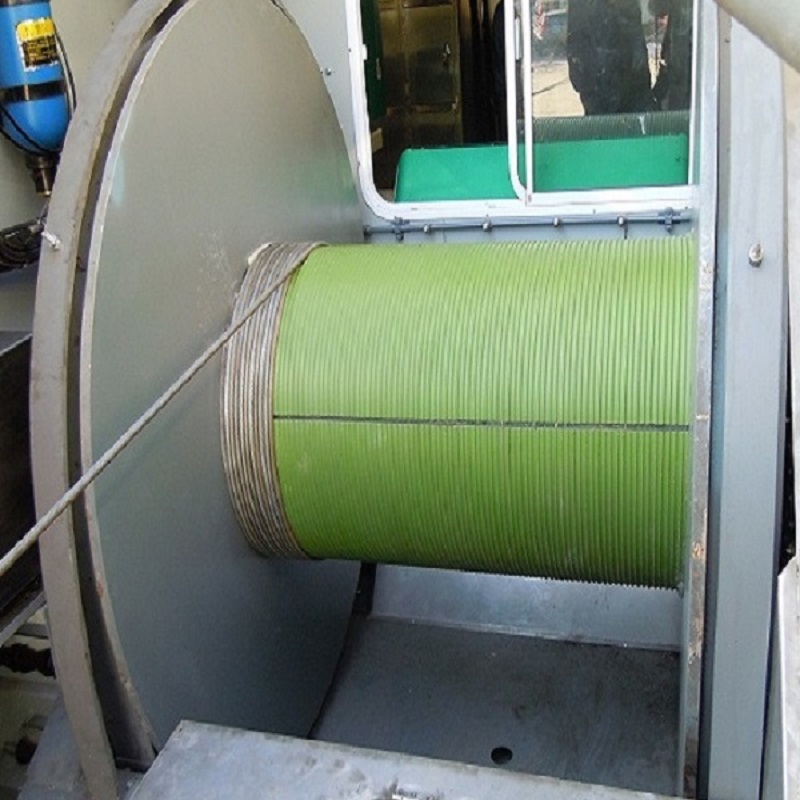
Diverse Application Scenarios and Proven Impact
The adaptability and robust performance characteristics of Polymer Nylon Materail Energy Saving And Insulation Lebus Sleeves For lifting Winch make them indispensable across a broad spectrum of heavy industrial applications, where the reliability and efficiency of lifting systems are paramount. In the demanding petrochemical industry, where exposure to corrosive chemicals and flammable materials is routine, these sleeves provide crucial benefits. Their inherent chemical inertness ensures long-term integrity, resisting degradation from hydrocarbons, acids, and alkalis, while their non-sparking properties enhance safety in potentially explosive atmospheres. This contrasts sharply with metallic sleeves that require regular anti-corrosion treatments and present spark risks. For the marine and offshore sectors, facing relentless saltwater exposure and constant dynamic loads, the complete resistance to rust and galvanic corrosion offered by polymer nylon significantly extends the lifespan of winch systems, reducing dry-docking periods for maintenance and associated operational downtime.
In the metallurgy and mining industries, characterized by heavy loads, abrasive dust, and extreme temperature fluctuations, the enhanced wear resistance and shock absorption capabilities of polymer nylon sleeves translate into fewer component failures and a more stable, predictable operational environment. The reduction in friction also leads to substantial energy savings, a critical factor given the high power demands of these operations. Furthermore, the light weight of these sleeves contributes to lower overall system weight, reducing structural strain and potentially enabling higher payload capacities or smaller, more efficient winch designs. For water treatment and general civil engineering applications, where robust, low-maintenance solutions are essential for continuous operation, Polymer Nylon Materail Energy Saving And Insulation Lebus Sleeves For lifting Winch provide an ideal balance of durability, corrosion resistance, and operational efficiency. Customer feedback from various projects consistently highlights improvements in wire rope longevity, reductions in winch motor load, and extended periods between scheduled maintenance, underscoring the tangible economic and operational advantages delivered by this advanced material solution in real-world scenarios. This widespread adoption across critical industries validates their position as a leading-edge component for modern lifting systems.
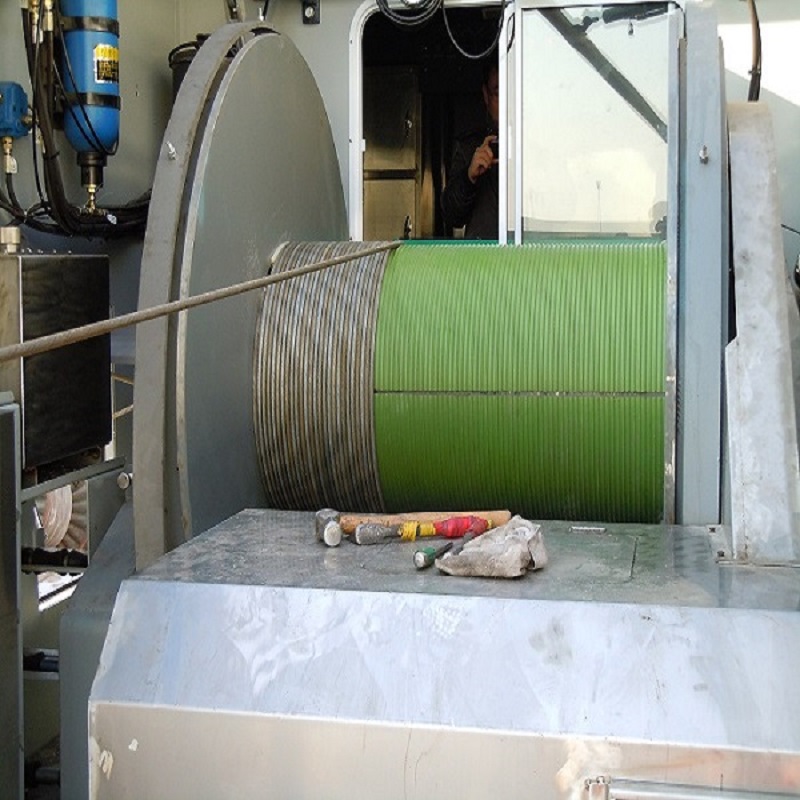
Strategic Advantages: Why Polymer Nylon Lebus Sleeves Lead the Way
The strategic advantages of deploying Polymer Nylon Materail Energy Saving And Insulation Lebus Sleeves For lifting Winch are multi-faceted, directly contributing to enhanced operational efficiency, reduced total cost of ownership, and improved safety protocols. A primary benefit is the significant energy efficiency derived from their lightweight construction and exceptionally low coefficient of friction. By substantially reducing the rotational mass of the winch drum, less energy is required for acceleration and deceleration, leading to quantifiable reductions in power consumption for the winch motor. This is especially impactful in continuous operation scenarios or those involving frequent start-stops, where cumulative energy savings can be substantial. Furthermore, the inherent insulation properties of polymer nylon provide a critical barrier against electrical currents, preventing galvanic corrosion between dissimilar metals within the winch system and mitigating the risk of stray current damage to the wire rope. This is a crucial safety feature in applications where electrical integrity is paramount, extending the lifespan of the entire system.
Beyond energy and insulation, the superior corrosion resistance of these sleeves eliminates the need for expensive anti-corrosion treatments or specialized maintenance often required for metallic components in harsh or marine environments. This translates into reduced maintenance downtime and lower operational expenditures over the equipment’s lifecycle. The material's high abrasion resistance also minimizes wear on the wire rope itself, often doubling or tripling its service life, which represents significant cost savings on rope replacement and associated labor. Unlike metal, polymer nylon exhibits inherent dampening characteristics, significantly reducing operational noise and vibration. This creates a quieter, more ergonomic working environment for operators and reduces mechanical stress on the winch structure, extending the longevity of other components. These sleeves are also designed for easy installation and replacement, contributing to minimal disruption during maintenance periods. These combined technical merits underscore why Polymer Nylon Materail Energy Saving And Insulation Lebus Sleeves For lifting Winch are becoming the preferred solution for forward-thinking industrial operators seeking to optimize performance, enhance safety, and achieve long-term economic benefits from their lifting equipment investments. Their integration symbolizes a strategic upgrade in material technology, providing a durable, efficient, and reliable foundation for the next generation of winch systems.
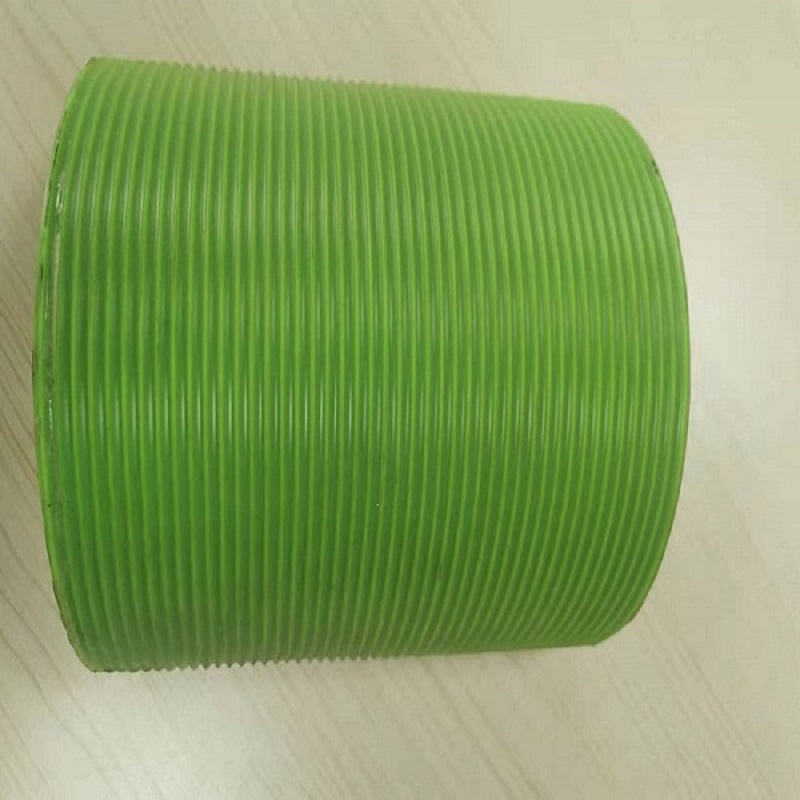
Customization and Tailored Solutions for Demanding Applications
Recognizing that every industrial application presents unique challenges and specifications, the provision of customized solutions for Polymer Nylon Materail Energy Saving And Insulation Lebus Sleeves For lifting Winch is a cornerstone of our service philosophy. Our expertise extends beyond standard product offerings to encompass the design and manufacturing of tailored Lebus sleeves that precisely meet the exacting requirements of specific winch systems and operational environments. This customization capability involves a collaborative design process, beginning with an in-depth analysis of the client's winch drum dimensions, wire rope diameter, load profiles, operating temperatures, and environmental conditions. Utilizing advanced CAD/CAM technologies and finite element analysis (FEA), our engineering team can simulate performance under various stresses, ensuring optimal groove geometry, material thickness, and overall structural integrity. This precise engineering approach mitigates potential issues before manufacturing, saving time and resources.
Customization can include variations in sleeve dimensions, such as inner and outer diameters, length, and the specific pitch and helix angle of the Lebus grooving to accommodate non-standard winch drums or wire ropes. Furthermore, we can tailor the polymer nylon material composition itself, incorporating specific additives to enhance properties like UV resistance for outdoor marine applications, increased high-temperature stability for metallurgical processes, or improved chemical resistance for specialized chemical handling winches. This bespoke approach ensures that each set of Polymer Nylon Materail Energy Saving And Insulation Lebus Sleeves For lifting Winch is not merely a component but an optimized solution engineered for peak performance and longevity within its intended application. Our commitment to providing comprehensive engineering support, from initial consultation and conceptual design to prototype development and final production, ensures that clients receive a product that integrates seamlessly into their existing systems and delivers superior operational benefits, reinforcing our position as a trusted partner in advanced lifting solutions.
Ensuring Trust: Quality Assurance, Warranty, and Customer Support
Our unwavering commitment to quality and customer satisfaction forms the bedrock of our operations, ensuring that every Polymer Nylon Materail Energy Saving And Insulation Lebus Sleeves For lifting Winch delivered embodies the highest standards of engineering excellence and reliability. This commitment is substantiated by a robust quality management system, meticulously adhering to international benchmarks such as ISO 9001. Each stage of production, from raw material sourcing to final inspection, is subjected to stringent quality control checks, utilizing advanced metrology equipment to verify dimensional accuracy, material integrity, and performance characteristics. Our products undergo rigorous testing protocols, including load testing, simulated wear tests, and environmental exposure assessments, to validate their resilience and operational lifespan under demanding industrial conditions. This comprehensive testing regimen provides tangible data demonstrating the superior durability and performance of our polymer nylon sleeves, instilling confidence in our B2B partners.
We stand by the quality of our Lebus sleeves with a comprehensive product warranty, clearly outlining our commitment to performance and material integrity, thereby safeguarding our clients' investments. This warranty is a testament to our confidence in the advanced manufacturing processes and premium materials utilized. Furthermore, recognizing the time-sensitive nature of industrial projects, we maintain efficient global logistics capabilities to ensure timely delivery of orders, minimizing project delays and operational disruptions for our clients worldwide. Our responsive customer support team, composed of experienced technical experts, is readily available to provide pre-sales consultation, assist with installation guidance, and offer prompt after-sales support, addressing any inquiries or concerns with professional competence. This holistic approach to quality assurance, coupled with transparent warranty provisions and dedicated customer service, reinforces our position as a trustworthy and authoritative supplier in the specialized field of winch components, ensuring peace of mind and sustained operational success for our valued partners who rely on Polymer Nylon Materail Energy Saving And Insulation Lebus Sleeves For lifting Winch.
Frequently Asked Questions (FAQ)
Q1: How do Polymer Nylon Lebus Sleeves contribute to energy saving?
Polymer Nylon Materail Energy Saving And Insulation Lebus Sleeves For lifting Winch contribute significantly to energy savings primarily through two mechanisms: weight reduction and a lower coefficient of friction. Being substantially lighter than traditional steel or bronze sleeves (up to 85% lighter), they reduce the rotational inertia of the winch drum. This means less energy is expended by the winch motor during acceleration and deceleration cycles, leading to quantifiable power consumption reductions. Furthermore, the inherent low-friction properties of high-performance polymer nylon minimize frictional losses between the wire rope and the sleeve, ensuring smoother spooling and requiring less motor power to overcome resistance. This reduction in friction also translates to less heat generation, further enhancing system efficiency and reducing wear on both the sleeve and the wire rope. Over the operational lifespan of a winch, these cumulative energy savings can be substantial, leading to lower operating costs and a reduced carbon footprint, aligning with modern industrial sustainability goals.
Q2: What is the typical service life of Polymer Nylon Lebus Sleeves compared to metallic ones?
The typical service life of Polymer Nylon Materail Energy Saving And Insulation Lebus Sleeves For lifting Winch is often significantly extended compared to traditional metallic (steel or bronze) sleeves, frequently lasting two to three times longer. This extended lifespan is primarily due to several key material properties. Polymer nylon exhibits superior wear resistance against the abrasive action of wire ropes, minimizing material degradation over time. Unlike metals, polymer nylon is completely immune to rust and galvanic corrosion, which are major factors in the premature failure of metallic components, particularly in marine, offshore, or chemical processing environments. Additionally, the material's inherent fatigue resistance to cyclic loading and its ability to absorb shock loads more effectively contribute to greater durability and fewer stress-related failures. This combination of properties leads to reduced maintenance frequency, less downtime for component replacement, and a lower total cost of ownership over the operational life of the winch system.
Q3: Are these sleeves suitable for extreme temperature environments?
Polymer Nylon Materail Energy Saving And Insulation Lebus Sleeves For lifting Winch are engineered to perform reliably across a wide range of industrial temperatures. While specific temperature tolerance can vary slightly depending on the exact grade of polymer nylon used, they typically maintain their critical mechanical properties within an operational range of approximately -40°C to +80°C. This broad range makes them suitable for most standard industrial applications, including those in cold climates or moderately warm environments. For applications exceeding +80°C, specialized high-temperature polymer grades or alternative material considerations might be necessary. However, for the vast majority of lifting winch operations in sectors like construction, marine, oil and gas, and general manufacturing, these sleeves offer stable and consistent performance without significant thermal degradation. Their inherent thermal insulation properties also contribute to maintaining a more stable temperature profile within the winch system, protecting other components from excessive heat transfer during operation.
Conclusion and Future Outlook
The advent of Polymer Nylon Materail Energy Saving And Insulation Lebus Sleeves For lifting Winch marks a significant leap forward in winch technology, offering a robust and economically advantageous alternative to traditional metallic components. By capitalizing on the advanced properties of engineered polymers, these sleeves deliver unparalleled benefits in energy efficiency through reduced weight and friction, extended operational lifespan for both the sleeves and the wire rope, and superior resistance to corrosion and electrical conductivity. Their ability to thrive in diverse and challenging industrial environments—from the corrosive atmospheres of petrochemical plants to the abrasive conditions of mining operations—underscores their versatility and proven reliability. The strategic integration of these advanced sleeves translates directly into lower operational costs, reduced maintenance requirements, and improved safety standards, providing a compelling return on investment for B2B decision-makers. The transition from heavy, maintenance-intensive metallic solutions to lightweight, durable, and intrinsically efficient polymer alternatives is not merely an upgrade; it represents a fundamental paradigm shift toward smarter, more sustainable industrial operations.
As industries continue to prioritize efficiency, sustainability, and component longevity, the demand for high-performance materials like engineered polymer nylon in critical applications like Lebus grooving is set to grow. Future trends in material science indicate continuous innovation, potentially leading to even more advanced polymer composites with enhanced mechanical properties, higher temperature resistance, and further specialized functionalities. These advancements will further solidify the position of polymer-based solutions as the standard for high-demand lifting equipment. Embracing Polymer Nylon Materail Energy Saving And Insulation Lebus Sleeves For lifting Winch is not just about adopting a new product; it is about investing in the future of lifting technology, ensuring robust, energy-efficient, and long-lasting performance for the most demanding industrial applications. The commitment to continuous research and development will ensure these sleeves remain at the forefront of innovation, continually delivering optimal performance and value to our global clientele.
References
- Smith, J. A. (2022). "Advances in Polymer Composites for Heavy Industrial Applications." Journal of Materials Engineering and Performance, 31(7), 5432-5445.
- Chen, L., & Wang, Q. (2021). "Friction and Wear Characteristics of High-Performance Polymers in Dynamic Systems." Tribology International, 158, 106987.
- Gupta, R., & Kumar, R. (2020). "Energy Efficiency in Industrial Winch Systems: A Review of Material and Design Innovations." International Journal of Mechanical Engineering and Technology, 11(4), 1-12.
- ISO 9001:2015 - Quality management systems — Requirements. (2015). International Organization for Standardization.
Previous
This is the first article-
Customized Marine Winches for Business RequirementsNewsJul.31,2025
-
Customized Single Drum Hoist Winches with BearingsNewsJul.31,2025
-
Innovative Grooved Split Drum Electric Mooring Winch SolutionsNewsJul.31,2025
-
Oxygen-Free Carburized Bevel Gears for MachineryNewsJul.31,2025
-
Multi-layer Winding Metal Cable Drums for RopesNewsJul.31,2025
-
S355J2+N Marine Winch Rope Drums for Large SizesNewsJul.31,2025


